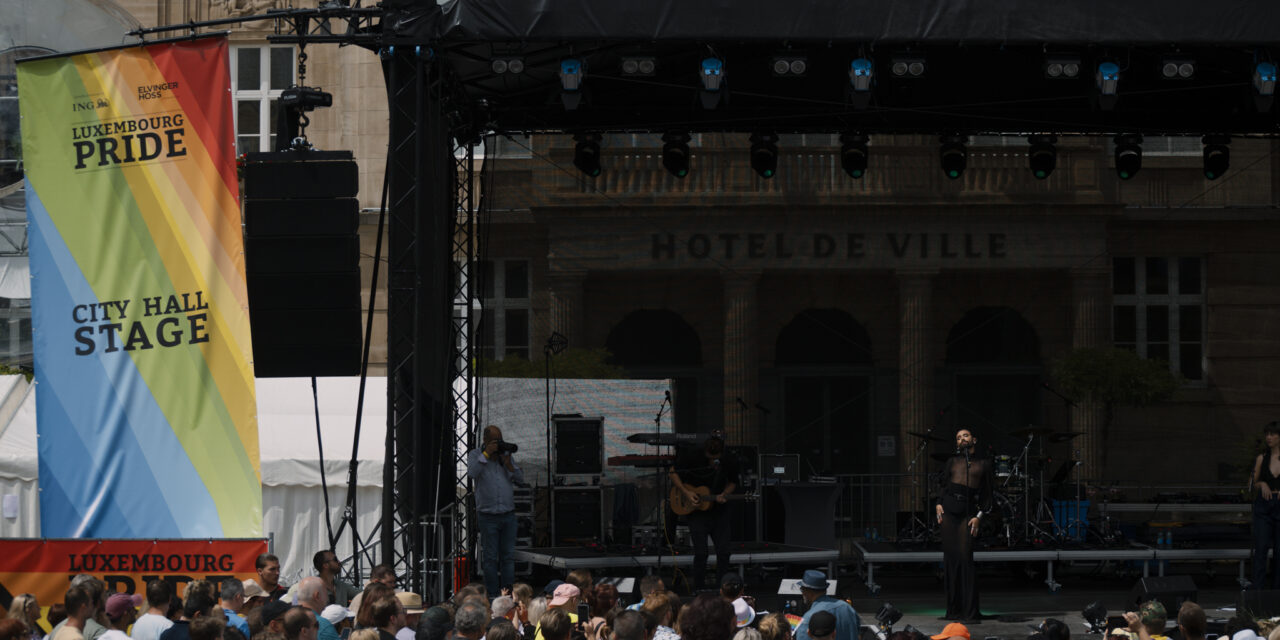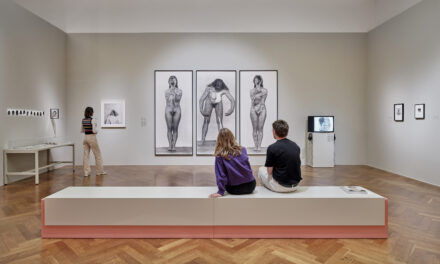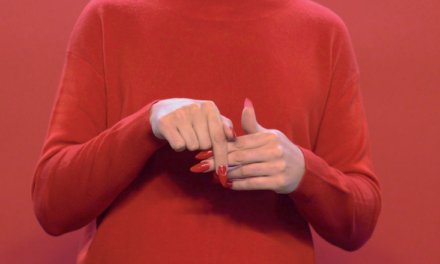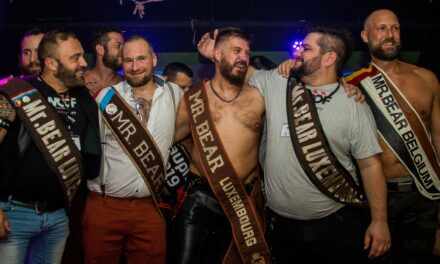Conchita Wurst is a queer icon. The Austrian drag artist sang her way into our hearts in 2014 when she won the Eurovision Song Contest in a glamorous gown, long false eyelashes and a beautifully styled beard. Ten years after winning the ESC, Conchita is as busy as ever. Tom Neuwirth, the person behind the stage name, released his latest single “Any Day From Now On” in May and is currently playing the lead role in the musical play “LUZIWUZI. I am the Empress” at the Rabenhof Theater in Vienna.
Shortly before Conchita’s performance at Luxembourg Pride in July 2024, queer.lu caught up with Tom to talk about Chosen Family, his first time in drag and European politics.
queer.lu: The fourth edition of queer.lu is all about the life experiences of queer students and their environment. In this context, the idea of Chosen Family often comes up. What does Chosen Family mean to you?
Tom Neuwirth: For me, Chosen Family is the environment in which you feel fully understood, in which you don’t have to explain yourself or hide – but also in which there are no restrictive expectations of you as a person, which is sometimes in contrast to your biological family.
When you think back on your career as an artist now, what role has your Chosen Family played in your artistic development?
You are always the sum total of the people that surround you. Of course, my friendships and experiences have influenced my art. Hmm… What my friends would probably say is that they have kept me grounded. I’m a person, if I get a lot of approval, then I’m like… [big smile] all eyes on me! My friends keep me grounded in reality. Sometimes I also think I don’t get enough attention from them [laughs]. I always applaud everyone when they get a promotion or a new car.
If you think back to the very beginning of your career, for example when you first did drag, did your friendships also help you to feel comfortable with your queer expression?
Oh, I didn’t have a problem with it at all! I felt alive!
When was your first time doing drag?
It may not have been drag, but I was dressed up as a princess or a witch every time I went to a carnival or fancy dress party. There were no boundaries when it came to clothes. I also went to school and kindergarten in a dress. I always wanted to wear a one-piece in gym class. And that’s what I did and my parents let me do it too. But my parents always waited outside school because they were expecting a confrontation to happen – and it did. That also broke something inside me. But that changed when I was in my early twenties. My boyfriend at the time, who also did drag, put make-up on me for the first time. The power of drag! I totally found that joy again. I also see it in my male friends when I put make-up on them and then they go out. They have the time of their fucking life. It was the same for me, you feel invincible. Not necessarily that you feel like someone else, but just so self-confident.
It sounds like you’re also giving a lot back to your Chosen Family now – for example by doing their make-up.
Yes, they are all my daughters now [laughs].
A drag family that slays together, stays together. Speaking of give and take. You’re about to perform at Luxembourg Pride. Is there anything you want the audience to take away from your performance – and that you will take with you?
I try to feel everything for myself. With all the perfectionism and things you have to think about during a performance like this, I want to stay in the moment first and foremost so that this energy can carry over!
Then I always try to say something halfway clever. This year I’m reminding everyone that we should vote because it’s the only way out of this mess. And of course I’m trying to spread a good mood. I want people to have fun – and in the best case scenario, I want them to think that they should talk to their parents and the people around them about the elections and politics.
You perform at many queer events and Prides around the world. How do you experience these venues and safe spaces during your performances?
Especially during Rise Like A Phoenix [Conchita Wurst won the Eurovision Song Contest 2014 with the song Rise Like Phoenix, editor’s note], you can feel the community. So many people associate so much with the song and you can really feel that. You can’t even describe it. I always feel like I’ve been transported back in time. I feel the resilience, the strength of our community. Despite the current opposition, which is understandably demoralizing and intimidating at times, I feel unstoppable when I sing this song. We are all together and in a community you are simply strong.
You just mentioned this opposition. A study on the situation of queer people in the EU came out in May. Among other things, it states that 48% of LGBTIQ+ people in Luxembourg always or often avoid holding hands with their same-sex partner in public. How did you find the self-confidence to show your queer identity so openly?
Of course, it’s totally individual. If you don’t feel comfortable, then you shouldn’t do it. I was brought up like that from an early age. My grandmother is also always like I don’t give a fuck what you think. And that’s always been the energy in our home. So for me it was a mix of upbringing, family, role models and Chosen Family.
But regarding these numbers of hand-holding, it’s really important to say that if you don’t feel it, then you don’t have to do it. There are others who are outwardly queer anyway and who are loud. I once saw a meme like this: I am going to be loud, so you can be comfortable. And I think that’s also nice as a community, that not everyone has to do everything. We all just do what we can and if you don’t feel 100% comfortable with something, then hopefully someone else will take over.
In your opinion, are there still areas that we need to tackle within the queer community in order to support each other even better?
You realize, community or not, we are all people with egos and opinions. Of course, we share common experiences, such as coming out or being a queer child in the countryside and so on. At best, this connects us all and creates understanding, but unfortunately it doesn’t always work out that way. We also have racism and transphobia and other forms of discrimination. These are systems that have been created over centuries. But I am convinced that if we are polite and nice, then the first step has been taken – simply be respectful.
I recently read: No matter the conflict, you should always respond with questions. Why? Why? Why? No matter how stupid the questions are. The deeper you dig, the more likely the other person is to open their eyes and you can have a conversation at eye level. You give the person attention that they probably weren’t expecting. They then think to themselves: You want to know something about me, even though I’ve just insulted you. You can break this defensive reaction behavior.
As I mentioned, we’re at Luxembourg Pride right now and it’s about reflecting on the conflicts that exist within the queer community, but also about celebrating our queerness and our LGBTIQ+ family. What else could the cis-hetero society learn from us?
So much! But you still have to differentiate, especially between men and women. Structurally, women have a lot more to deal with because they constantly hear: you are this, this and this is not… Just like we queer people often hear. And that forces you to deal with yourself. A lot of white cis-hetero men don’t do that. Everything is forgiven. You can beat your wife, cheat on her and then? No accountability. Of course, not all men are, but male ego and male fragility are real. And men don’t have to deal with these realities – for example, asking themselves: why does this make me angry? That’s the cat biting its own tail, as it’s unmanly to deal with your own feelings. It’s a system that is doomed to fail and yet has been going on for so long.
To come back to the question: Check in with yourself, reflect, read the room. I also wonder what so many men are complaining about. I just think: look at your mother, look at my mother. What are your problems? I really can’t stand men who constantly see themselves as victims. Self-reflection is just so important.
Finally, what does Pride 2024 stand for to you?
It is intense. It started last year, but this year it’s even stronger. There was a time when Prides were so easy and there was such goodwill from all sides. Now that has changed. We are reminded that our rights are not guaranteed and that democracy could be undermined just like that. For a very, very long time, I didn’t have a single hate comment under my photos online – and now that has started again. I can take it, I can deal with it. And hope dies last. If the worst comes to the worst, we’ll get through it because that’s what we’ve always done.
Thank you very much for the interview Tom and good luck with your performance at Luxembourg Pride.
Photo: Pit Reding
Article translated from German





